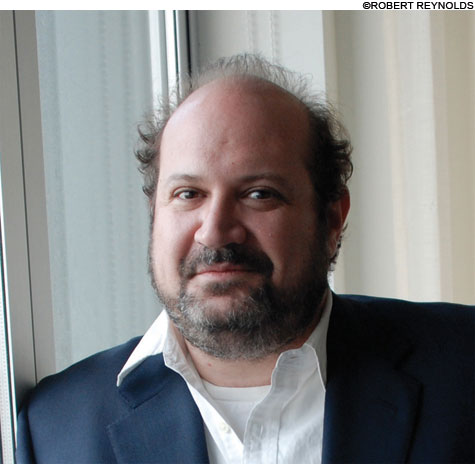
TRUE WIT Lipsyte tempers his extreme style with pathos. |
THE ASK | By Sam Lipsyte | Farrar, Straus And Giroux | 306 pages | $25 |
In his books Venus Drive, The Subject Steve, and Home Land, novelist and short-story writer Sam Lipsyte revels in rage. His stories follow loners on the fringes of society who depend on sex and drugs for existential relief. The spectacle tends to be so horrific it's hard to watch or not watch.
In The Ask, the viewing is easier, but just as edgy. It follows Milo Burke, a failed painter turned university fundraising drone, who resents — nay, loathes — everything about America (that "run-down and demented pimp," as his friend Horace describes it) but otherwise possesses less passion than a seasoned hooker. You want to hate him, but there's an integrity at the deep center of his precise and sarcastic humor that somehow makes him loveable.
When Milo's disillusioned bitterness boils over in a hateful invective directed at the spoiled daughter of a major donor, he loses his job at New York's Mediocre University Arts Development Office brownnosing philanthropists to get their money (the "asks"). Once the damn-the-man ecstasy subsides, though, he has to deal with fiscal and familial realities. Who will pay for his son to attend the progressive pre-school that regularly cancels class to revise their pedagogical manifesto? How will he win back the already diminished respect of his wife? How will he feed his coconut donut addiction?
Enter Purdy — long-lost college pal, now successful business man, potential Mediocre University donor — and with him a chance at sweet redemption. Of course, in a world where a man's widowed mother can become a lesbian overnight, things are not so simple. Milo must help resolve the convoluted complications of Purdy's life to earn the ask's give and win his job back.
From beginning to end, Lipsyte attacks everything from America's educational system to the corrupting power of wealth to circumcision. Milo's bitterness is oddly clarifying. He describes the pre-school: "It was the filth beneath the tidiness that got to me, every bookcase and table and chair smeared with an odd, thin grease. It must have been some pedagogical lubricant." Occasionally, Lipsyte over-indulges in playing with the bizarre logic of contemporary society, which can leave you feeling like you're on the outside of an in-joke. But these occasional lulls don't disrupt the overall brisk pace.
And Milo has his moments of genuine sentiment. Walking past the home of a neighbor family who had all died in a car accident, he remembers a man’s man who smoked cigarettes on the front porch while watching his son and daughter. "But then I would very nearly see the boy and the girl in their sweatshirts, climbing through the grimed window of the playhouse, and I would feel a jangled shiver, like shaves of ice in the blood, which was maybe just my nerves trying to shield me, to throw up some farce of hauntedness, of spirits lingering, to save me from the brute fact of their oblivion." The pathos works as a counterpoint to Lipsyte's bitterness; he could afford more of it.
Even with its extremes, The Ask is ultimately well-balanced. It's bitterly satirical without being self-congratulatory. Its jokeyness, though compulsive, never gets stale. It dallies in a self-conscious, post-modern manner, but doesn't beat itself raw, bloody, and flaccid with cyclical-thought masturbation. It's a fat man that invites you to revel in the jiggle of his man-boobs while he dances. I say dance on, fat man, dance on.
SAM LIPSYTE | Brookline Booksmith, 279 Harvard Ave, Brookline | March 10 @ 7 pm | brooklinebooksmith.com